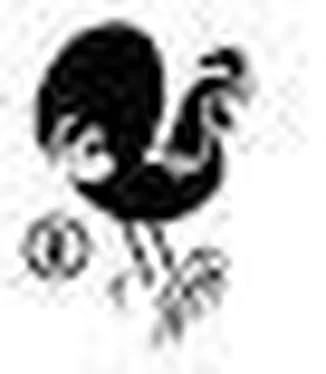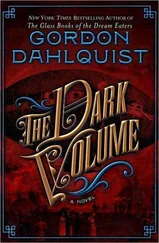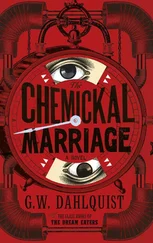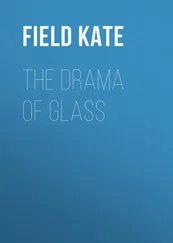Though the winter was verging into spring, the city was still damp around the edges, and the evenings colder than the lengthening days seemed to promise. Miss Temple left the tea shop at four o’clock, knowing Roger to leave usually at five, and hired a carriage. She instructed her driver in a low, direct tone of voice, after assuring him he would be well paid for his time, that they would be following a gentleman, most likely in another carriage, and that she would rap on the roof of the coach to indicate the man when he appeared. The driver nodded, but said nothing else. She took his silence to mean that this was a usual enough thing, and felt all the more sure of herself, settling in the back of the coach, readying her glasses and her notebook, waiting for Roger to appear. When he did, some forty minutes later, she nearly missed him, amusing herself for the moment by peering through the opera glasses into nearby open windows, but some tingling intuition caused her to glance back at the courtyard gates just in time to see Roger (standing in the road with an air of confidence and purpose that made her breath catch) flag down a coach of his own. Miss Temple rapped sharply on the roof of the coach, and they were off.
The thrill of the chase—complicated by the thrill of seeing Roger (which she was nearly certain was the result of the task at hand and not any residual affection)—was quickly tempered when, after the first few turns, it became evident that Roger’s destination was nowhere more provocative than his own home. Again, Miss Temple was forced to admit the possibility that her rejection might have been in favor of no rival, but, as it were, immaculate. It was possible. It might even have been preferable. Indeed, as her coach trailed along the route to the Bascombe house—a path she knew so well as to once have considered it nearly her own—she reflected on the likelihood that another woman had taken her place in Roger’s heart. To her frank mind, it was not likely at all. Looking at the facts of Roger’s day—a Spartan path of work to meal to work to home where undoubtedly he would, after a meal, immerse himself in still more work—it was more reasonable to conclude that he had placed her second to his vaulting ambition. It seemed a stupid choice, as she felt she could have assisted him in any number of sharp and subtle ways, but she could at least follow the (faulty, childish) logic. She was imagining Roger’s eventual realization of what he had (callously, foolishly, blindly) thrown aside, and then her own strange urge to comfort him in this sure-to-be-imminent distress when she saw that they had arrived. Roger’s coach had stopped before his front entrance, and her own a discreet distance behind.
Roger did not get out of the coach. Instead, after a delay of some minutes, the front door opened and his manservant Phillips came toward the coach bearing a bulky black-wrapped bundle. He handed this to Roger through the open coach door, and then in turn received Roger’s black satchel and two thickly bound portfolios of paper. Phillips carried these items of Roger Bascombe’s work day back into the house, and closed the door behind him. A moment later, Roger’s coach jerked forward, returning at some pace into the thick of the city. Miss Temple rapped on her coach’s ceiling and was thrown back into her seat as the horses leapt ahead, resuming their trailing surveillance.
By this time it was fully dark, and Miss Temple was more and more forced to rely on her driver that they were on the right path. Even when she leaned her head out of the window—now wearing the hood for secrecy—she could only glimpse the coaches ahead of them, with no longer a clear confidence about which might be Roger’s at all. This feeling of uncertainty took deeper hold the longer they drove along, as now the first tendrils of evening fog began to reach them, creeping up from the river. By the time they stopped again, she could barely see her own horses. The driver leaned down and pointed to a high, shadowed archway over a great staircase that led down into a cavernous gas-lit tunnel. She stared at it and realized that the shifting ground at its base, which she first took to be rats streaming into a sewer, was actually a crowd of dark-garbed people flowing through and down into the depths below. It looked absolutely infernal, a sickly yellow portal surrounded by murk, offering passage to hideous depths.
“Stropping, Miss,” the driver called down and then, in response to Miss Temple’s lack of movement, “train station.” She felt as if she’d been slapped—or at least the hot shame she imagined being actually slapped must feel like. Of course it was the train station. A sudden spike of excitement drove her leaping from the cab to the cobblestones. She quickly thrust money into the driver’s hand and launched herself toward the glowing arch. Stropping Station. This was exactly what she had been looking for—Roger was doing something else .
It took her a few desperate moments to find him, having wasted valuable seconds gaping in the coach. The tunnel opened into a larger staircase that led down into the main lobby and past that to the tracks themselves, all under an intricate and vast canopy of ironwork and soot-covered brick. “Like Vulcan’s cathedral.” Miss Temple smiled, the vista spreading out beneath her, rather proud of so acutely retaining her wits. Beyond coining similes, she had the further presence of mind to step to the side of the stairs, use a lamp post to perch herself briefly on a railing, and with that vantage use the opera glasses to look over the whole of the crowd—which her height alone would never have afforded. It was only a matter of moments before she found Roger. Again, instead of immediately rushing, she followed his progress across the lobby to a particular train. When she was sure she had seen him enter the train, she climbed off of the railing and set off first to find out where it was going, and then to buy a ticket.
She had never been in a station of such size—Stropping carried all traffic to the north and west—much less at the crowded close of a working day, and to Miss Temple it was like being thrust into an ant-hill. It was usual in her life for her small size and delicate strength to pass unnoticed, taken for granted but rarely relevant, like an unwillingness to eat eels. In Stropping Station, however, despite knowing where she was going (to the large blackboard detailing platforms and destinations), Miss Temple found herself shoved along pell-mell, quite apart from her own intentions, the view from within her hood blocked by a swarm of elbows and waistcoats. Her nearest comparison was swimming in the sea against a mighty mindless tide. She looked up and found landmarks in the ceiling, constellations of ironwork, to judge her progress and direction, and in this way located an advertising kiosk she had seen from the stairs. She worked her way around it and launched herself out again at another angle, figuring the rate of drift to reach another lamp post that would allow her to step high enough to see the board.
The lamp post reached, Miss Temple began to fret about the time. Around her—for there were many, many platforms—whistles fervently signaled arrivals and departures, and she had no idea, in her subterranean shuffling, whether Roger’s train had already left. Looking up at the board, she was pleased to see that it was sensibly laid out in columns indicating train number, destination, time, and platform. Roger’s train—at platform 12—left at 6:23, for the Orange Canal. She craned her head to see the station clock—another hideous affair involving angels, bracketing each side of the great face (as if keeping it up with their wings), impassively gazing down, one holding a pair of scales, the other a bared sword. Between these two black metal specters of judgment, Miss Temple saw with shock that it was 6:17. She threw herself off the lamp post toward the ticket counter, burrowing vigorously through a sea of coats. She emerged, two minutes later, at the end of an actual ticket line, and within another minute reached the counter itself. She called out her destination—the end of the line, round-trip—and dropped a handful of heavy coins onto the marble, pushing them peremptorily at the ticket agent, who looked beakily at her from the other side of a wire cage window. His pale fingers flicked out from under the cage to take her money and shoved back a perforated ticket. Miss Temple snatched it and bolted for the train.
Читать дальше






![Theresa Cheung - The Dream Dictionary from A to Z [Revised edition] - The Ultimate A–Z to Interpret the Secrets of Your Dreams](/books/692092/theresa-cheung-the-dream-dictionary-from-a-to-z-r-thumb.webp)





